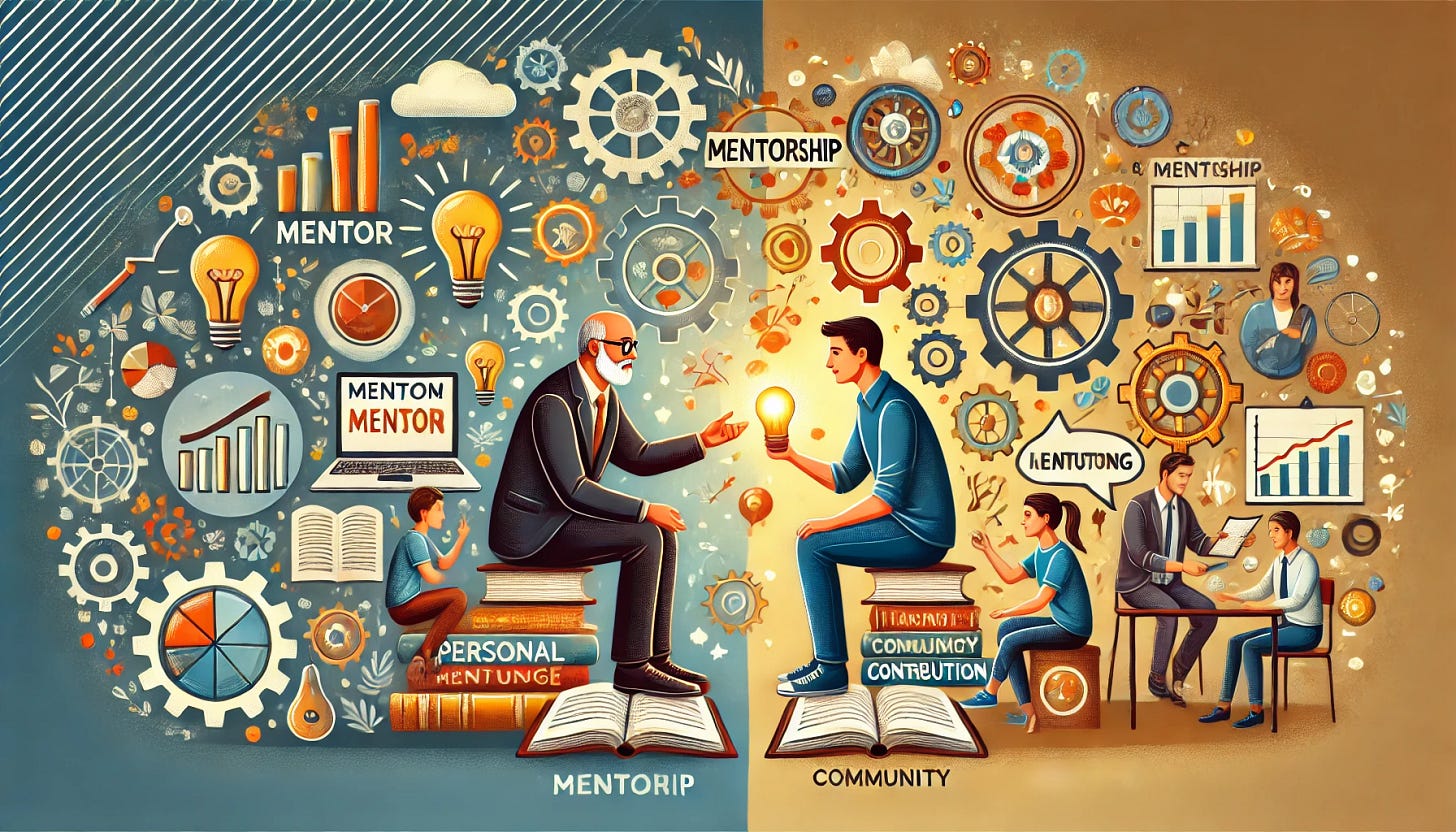We have talked extensively about mentoring—why you need a mentor, how they differ from coaches, how to find a mentor, and the common mistakes mentees make during the mentoring relationship.
Before we dive into today's post, I would love your feedback on this topic. Please take a moment to participate in this poll.
Now, getting back to today’s post.
Why become a mentor? What’s in it for a mentor?
As someone who has been both a mentee and a mentor for several years, I can provide some insights. When I first signed up for a mentorship program, it was as a mentee, and I had the same question. I couldn’t see any benefit of being a mentor. As a mentor, you share your insights and spend your time teaching a mentee, but what do you get in return?
Many mentoring relationships are transactional, which clarifies the incentive to be a mentor. However, when no money is involved and no other transaction is taking place, why would anyone want to become a mentor?
I asked this question to my mentor at the time. They smiled and suggested that I sign up as a mentor to someone else if I truly wanted to understand. So I did.
That was the best mentoring advice I ever received, and it’s a piece of advice I pass on to you: consider becoming someone's mentor today.
During my experience, I discovered two key reasons why people choose to become mentors.
Giving Back to the Community
Mentoring is a way of giving back to the community you are part of. It’s your contribution to society, the world you live in, and the world of tomorrow that you want to help create.
I’ve often said that mentors are like teachers. Imagine a world without teachers. Being a mentor is your chance to become a teacher. Just like teaching, mentoring is a selfless act, a way to give back.
Today’s world exists because of the teachers from the past. Without teachers, human evolution would not have occurred. Our world is built on the teachings of the past, and the world of tomorrow will be shaped by what we teach our generation today.
Personal Growth and Learning
Everyone can be a mentor. We all have experiences and knowledge gained throughout our careers. We all have the potential to mentor someone else, passing on our insights and teachings to the next generation.
Now, you may ask, "That's great. Does it help me become a better mentee?"
Yes. Apart from the social aspect of mentorship, being a mentor can help you become a better mentee.
When you become a mentor, you see your mentee's challenges from a different perspective. Sometimes, as mentors, we face similar challenges in different forms. Providing advice not only helps the mentee, but it also helps us resolve our own issues. This is also known as the Protégé Effect.
Furthermore, mentoring improves our communication with our mentors. Remember when we discussed common mistakes mentees make during their mentoring relationships? Mentoring helps us avoid those mistakes.
I hope I was able to convince you on becoming a mentor. While you are searching for a mentor for yourself, consider becoming a mentor to someone else. If you are already a mentor to someone, thank you for being there. I know they appreciate it and so does the world of tomorrow.



